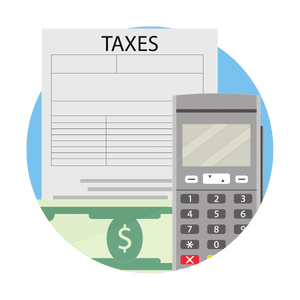Written By: MB Group
Filing federal and state tax returns is a common practice and requirement for people throughout the country. Generally, any income earner will need to send in a tax return by April 15 of each year for the preceding calendar year.
Unfortunately, there are situations when someone may not be able to have their tax return prepared and sent in by this time. In these situations, filing a tax extension with the IRS will need to be completed. There are various tax return extension FAQs to review that could help to answer any questions that you have.

Overall, a tax extension is a formal request to delay the date when your taxes need to be filed with the IRS. Generally, you will need to send in an extension by April 15 each year. This will then give you up to 6 additional months to file the taxes.
However, it does not give you the right to delay any additional taxes that you may owe. Along with the tax extension document, you will want to send in any estimated payments. If this is not done and you owe taxes later, you could be charged with a late fee.
If you are not able to file your taxes on time, it is important to follow the proper processes to have your tax extension request submitted. By April 15, you will need to prepare and send in the Form 4868, Application for Automatic Extension of Time to File U.S. Individual Income Tax Return. This document is a standard form that can be provided by any CPA or tax preparation software program.
Read More: How To File a Tax Extension
Generally, the process of extending your tax filing date is free and does not come with additional charges. However, you are considered responsible for any taxes owed by April 15. Because of this, you will need to come up with a fair estimate for your tax liability and send that in along with your tax extension document. These funds will then be applied to your final tax bill once you file. If you overestimate, you can receive a refund from the IRS when taxes are filed.
An important part of filing a tax extension is coming up with a fair amount to estimate as your tax liability. To do this, it would be a good idea to prepare your taxes as much as possible to get a sense of what you may owe to the IRS.
You can then make an estimate for your final tax bill based on what you expect additional information to look like in the future. Sending in an accurate tax amount will reduce the chance that you are assessed a late penalty.
When you are going to have your taxes extended, it is important that you follow the proper processes and provide any necessary information. On the extension document, you will need to provide the names, addresses, and SSNs of anyone that will be included in the tax form.
You will also need to provide an estimate of your tax liability and a summary of any tax payments you have already made. If you owe additional funds based on the estimate, you should include that as well. If you believe you will be owed a refund, that will be provided when taxes are filed.
When it comes to filing an extension, it can help to have qualified tax professionals by your side. At the MB Group we can help to put your mind at ease when you need to file an extension. Contact our team to see how we can best serve you.
Read More: Does Filing a Tax Extension Increase Chances of an Audit?
Tags: Taxes
Most business owners look for ways to increase profits, lower tax liability, drive more efficient growth, and find more time for life. Fortunately, you don’t have to look much farther than an...
Read MoreRunning your own business is something that appeals to many individuals. While it might be tempting to jump into the first opportunity that presents itself, taking the time to thoroughly evaluate the...
Read MoreThe coronavirus pandemic has left no stone unturned and has completely shifted the way we view business and life—including accounting. In fact, the COVID-19 pandemic has resulted in one of the most...
Read More